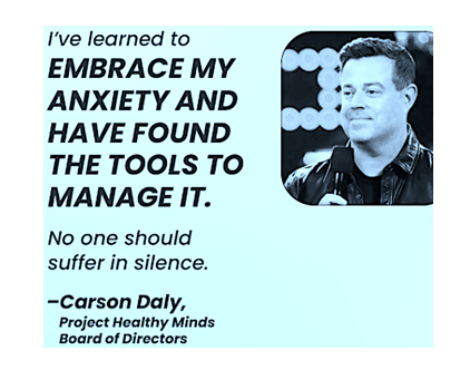While the holidays are the most joyful time of year for some people, for those living with mental health challenges, December can be a particularly dreary month. If you’re part of the latter group, you’re not alone: 64% of people say their mental health declines during the holidays.
Some people might feel overwhelmed with the sudden surge in time spent with family and friends, while others might feel lonely and isolated if they don’t have anyone to celebrate the holidays with, or if they have estranged relationships. The holidays can also be a time of intensified grief, particularly if it’s your first holiday season without a loved one you recently lost.
Generally, the holiday season is associated with stress, heightened expectations, and mounting social pressure. It can also be an especially taxing time for those who suffer from substance abuse and addiction.
Be kind to yourself over the holiday season, and prioritize managing your mental health before meeting the expectations of others. Here are some ways you can do that:
1. Set boundaries
The most important tip for protecting your mental health during the holiday season is to set boundaries—and honour them. Boundaries mean different things to different people, but they usually involve prioritizing those who make you feel good, rather than those who don’t. Learning to say no is a key part of managing your mental health over the holidays—and in general.
If you are the type of person who needs alone time to recharge, make sure to set aside a couple hours each day over the holidays for peace and quiet. Conversely, if you are someone who enjoys being surrounded by others, make as many plans as possible with the people who make you feel your best.
2. Plan ahead
Often, the most stress-inducing part of the holiday season is the planning process. Planning ahead will help you mitigate a lot of the holiday headaches, as you’ll have a keen sense of what to expect, what you’re responsible for preparing, and who you’ll have to interact with.
For many people, uncertainty is a central trigger for anxiety. The more you know about what lies ahead for the holidays, the easier time you’ll have coping with any bumps that come up along the way.
3. Budget accordingly
The holidays can be costly—from getting gifts to preparing meals and buying decorations. Having a feasible budget in mind, and sticking to it, will help stave off some of your holiday stress. If you’re on a particularly tight budget this year, opting for thoughtful gifts—such as a charity donation or a homemade piece of art—will lighten your load. Remember, your mental health is more important than pleasing your family and friends with frivolous gifts.
4. Stick to healthy habits
Of course, indulging over the holidays is a fact of life, but trying to maintain as much of your routine as possible will help you stay in a strong frame of mind. Whether that’s going for a daily walk, joining an exercise class, journalling, or eating balanced meals, adhering to your healthy habits will serve you well through the holidays.
5. Ask for help
If the holidays are hard for you, it’s always best to be honest with yourself—and the people you usually celebrate with. Your family and friends will be more sensitive to your needs if they know what they are, which will alleviate some of the social pressure. Simply acknowledging your own feelings can do a lot to help you manage your expectations, and those of your loved ones.
6. Know yourself
Particularly during the holiday season, it’s important to know yourself, your mental health needs and your personal triggers. Taking YMI’s science-backed survey is one way to help you do that, and gain a clearer picture of your mental health.
However you choose to spend this holiday season, remember that you are not alone. This is a hard time of year for countless people, and the most important thing you can do is to prioritize your needs above all else.



